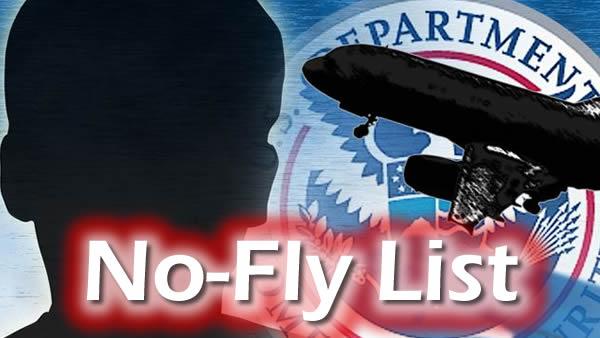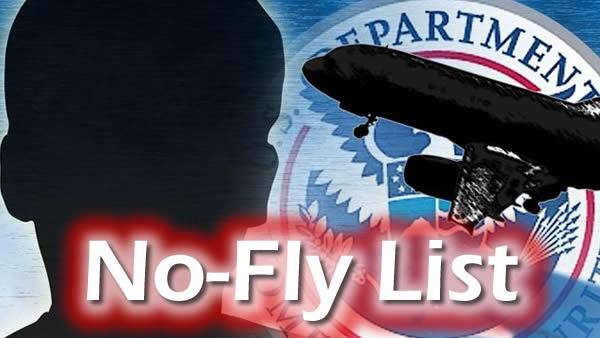

By: Keving Gosztola
Source: Firedoglake
The United States government sent four American Muslim men letters notifying them that they had been removed from the No Fly List. The men had no criminal records when they were put on the list and claim that they were put on the watch list in retaliation for not becoming FBI informants.
The notification came days before a major hearing in New York City on the government’s motion to dismiss a lawsuit by the four men—Muhammad Tanvir, Jameel Algibhah, Naveed Shinwari, and Awais Sajjad.
“I have no words. This is very big news for me,” Sajjad declared in a press release from the Center for Constitutional Rights, one of the organizations representing them.
“I hope next month I will travel to visit my grandmother in Pakistan. I miss my grandmother who is very sick and over 90 years old now. She raised me after my mother’s death.”
Sajjad has accused FBI agents of subjecting him to ““extensive interrogation, including a polygraph test, after which he was asked to work as an informant for the FBI.” And, his grandmother has been very sick since February 2012 but his placement on the No Fly List has kept him from traveling to see her.
Another plaintiff, Jameel Algibhah, stated, “They have done a lot of damage to me and to my life. They messed up my life. I haven’t seen my family in a long time. My youngest daughter doesn’t even know me. I want to continue this lawsuit.”
Algibhah declined a “request from FBI agents to attend certain mosques, to act ‘extremist,’ and to participate in online Islamic forums and report back to the FBI agents,” according to the filed lawsuit.
“After Mr. Algibhah learned that he was on the No Fly List, the same FBI agents again visited him, telling him that only they could remove his name from the No Fly List if he agreed to act as an informant.” He refused to become an informant, and, as a result, has not been able to visit his wife and three daughters in Yemen since 2009.
The Center for Constitutional Rights claims the men have lost their jobs, faced stigmas in their communities and “suffered severe financial and emotional distress.”
While the letters were clearly intended to convince the men to drop their lawsuit and help the government win dismissal, lawyers for the men will continue to seek redress for their placement on the No Fly List.
“These four men spent years not knowing whether they could fly, with the stigma of being on the list hanging over their heads,” CCR senior managing attorney Shayana Kadidal stated. “While we’re gratified that our clients can now get on with their lives, what happened here was not a simple error. It was an abuse invited by a system that lacks transparency and accountability.”
Kadidal added, “The courts need to ensure that people placed on the list solely as leverage to force them to spy on their communities can seek justice for the injuries they suffered.”
The notification is part of a new procedure adopted after a federal court in Oregon ruled in June of last year that US citizens placed on the No Fly List had their rights to “procedural due process” violated and instructed the government to provide a “new process” that satisfied the “constitutional requirements for due process.”
In the case of Gulet Mohamed, a US citizen who claims his constitutional rights were violated when he was placed on the No Fly List, was notified that he could use this procedure if he wanted.
His lawyer, Gadeir Abbas, was not persuaded that this improved the constitutionality of the No Fly List.
“What revisions have been made are essentially meaningless,” Abbas declared in April. “While it’s an extremely minuscule step forward that the government is now willing to confirm whether or not someone is on the No Fly List, the fact remains that people on the No Fly List don’t need the government to tell them whether or not they are on that list because they find out for themselves when they try to fly.”
The government is only willing to identify the criteria under which a person has been listed. That criteria is “so broad as to actually communicate no meaningful information to allow a person to rebut the designation,” Abbas added.
None of the changes would help American Muslims like Tanvir, Algibhah, Shinwari or Sajjad. The notification they received would not have to confirm that the FBI was responsible for their placement or that there was any wrongdoing by agents. It would not have to confirm that rights had been violated—and probably would not to protect the government from lawsuits.
“It remains far too easy for the government to place people on the No-Fly List and far too difficult for those people to challenge that decision,” Ramzi Kassem of the Creating Law Enforcement Accountability & Responsibility (CLEAR) Project, co-counsel in the lawsuit.
The notification letters suggest that the best way for American Muslims to get off the No Fly List is to sue the government, however, not every American Muslim on the watch list has the will to challenge the government and risk further intimidation and harassment.
The Justice Department maintains there is “no constitutional right not to become an informant.” No “religious burden” is imposed if an FBI agent demands that an American Muslim spy for the government. If it did burden them, it is an American Muslim’s responsibility to inform agents of their “religious objections.” And, despite losing multiple No Fly List lawsuits, the Justice Department is still unwilling to recognize that Americans have a “liberty interest” in air travel.



